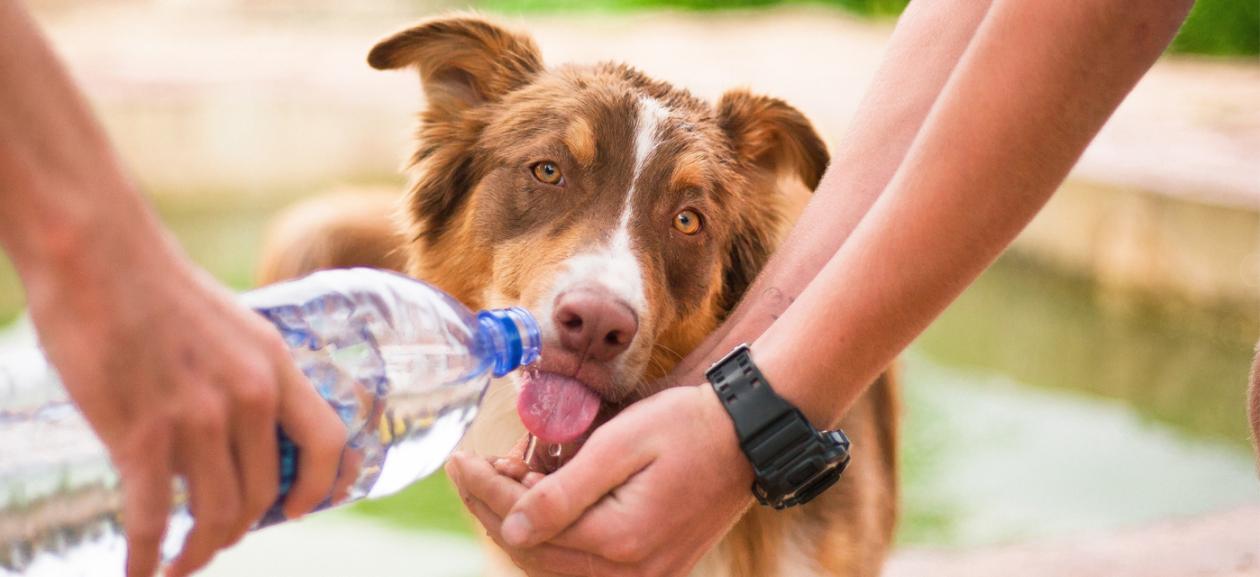
WARM WEATHER TURNS UP THE HEAT ON PET SAFETY
While pleasant for people, warm spring weather can cause major health issues for pets. DoveLewis is reminding pet owners to protect their furry family members as temperatures start to rise.
PORTLAND, Ore. – Pets could be at risk with this week’s warm weather. Doctors at DoveLewis Veterinary Emergency and Specialty Hospital are encouraging owners not to underestimate how a lovely spring day can impact their pet.
“Temperatures that feel comfortable to us could be harmful to an animal, so being aware of that and taking steps to keep pets cool is crucial to preventing heat stroke and exhaustion,” said Dr. Ladan Mohammad-Zadeh. Understanding your pet’s limitations and taking extra precautions in warm weather may be the difference between a fun day in the sun and a trip to the emergency room.
Tips for keeping dogs and cats safe in warm weather:
- Never leave a pet in a car. On a mild to hot day, temperatures in a closed car can exceed 120 degrees in minutes, creating a dangerous condition for any animal. Cracking a window or parking in the shade does not help.
- Give pets extra water. Hydration is crucial to avoid illness. Whether a pet is indoors or outdoors, fill their water bowls several times a day.
- Protect pets’ paws from hot surfaces. If the pavement is too hot for your bare hands or feet, it is too hot for a pet’s paws.
- Do not overdo outdoor exercise. Dogs do not know when they need a break. Stop frequently for shaded breaks and offer plenty of water.
- Take extra precaution with older dogs and dogs with shorter noses. They are susceptible to higher temperatures and at a greater risk of heatstroke.
- Apply pet-safe sunscreen to your dog. Sunburn can affect pets the same way it affects humans – pain, peeling and skin cancer. Use a pet-safe sunscreen on unprotected areas, like the tips of the ears, the skin around the lips, and the tip of the nose. A good rule of thumb for sunscreen: If it is safe for babies, it is safe for your pets.
- Do not leave windows open while pets are unattended. Pets are more likely to fall from windows when it is warm. Do not rely on window screens to keep your pet from falling.
- When in doubt, stay indoors. Avoid spending long periods of time outside during the hottest time of the day.
Know the signs of heatstroke in dogs and cats:
Heatstroke can be fatal if not treated quickly. Signs of heatstroke include:
- Panting
- Vomiting
- Warm and dry skin
- Rapid heartbeat
- Staring or anxious expressions
- Collapsing
- Refusal to obey commands
Owners who suspect their pet is experiencing heatstroke, or whose pet has fallen from a window, should call their regular veterinarian or DoveLewis immediately. In the meantime, they can help lower their pet’s body temperature by applying towels soaked in cool water to the hairless areas of the pet’s body (the tips and back of the ears, foot pads, belly and inner thighs). Use a fan to help cool the animal while they are wet. Even if the pets seems to cool down, it is still imperative to visit a veterinarian immediately as temperatures often spike again or cool below a safe, normal temperature. Please note: Avoid completely immersing a pet in water, since heat cannot leave the body as effectively in this situation, and extreme changes in body temperature are dangerous to the pet’s health.
###
Recent Posts
Why Chocolate Is So Risky for Pets
Milk or dark, candy or cake – chocolate may be one of our favorite sweet treats, but it’s definitely not meant to be consumed by our pets.
Holiday Hazards for Your Pet
Deck the halls with boughs of holly … but be sure it’s out of reach of your furry friends! It’s easy to get swept up in the festivities of the season, but don’t forget that added fun means added risks for your pets.




